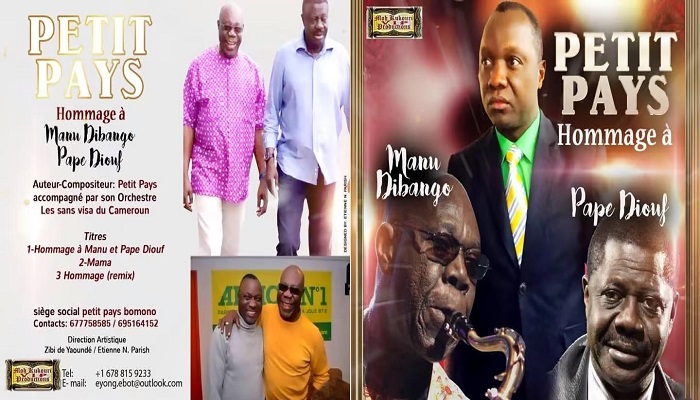3, June 2016
Yaounde hosting International Book Fair 0
The esplanade of the National Museum in Yaounde is the venue of the second Yaounde International Book Fair, which kicked off yesterday, June 2, 2016, on the theme: “The Book as Instrument of Integration and Development.”
Organised by the Ministry of Arts and Culture, this year’s edition brings together Cameroonian writers in the Diaspora, authors from the continent and about 20 other countries to enrich the book fair. The second edition comes after the first that was organised three years ago. Cameroonians of all walks of life thronged the venue yesterday to discover the books on display and even meet the writers.
The Technical Director in the Ministry of Arts and Culture, Dr. Asheri Kilo, said the book fair was an opportunity for young writers to sharpen their skills as there are workshops where older writers engage younger colleagues, offering tips on writing. Dr. Asheri Kilo said the wish of the Minister of Arts and Culture, Prof. Narcisse Mouelle Kombi, was to get Cameroonians read more. She said with books from all the 10 regions of Cameroon, visitors were enriched with a totality of the cultural values that the nation offers.
This year, special honour is given to five Cameroonian pioneer writers. Yesterday June 2, 2016, was dedicated to Mongo Beti. This explains why stands had the late writer’s books on exhibition and for sale. It was an opportunity for Cameroonians to buy books by the author they could not find earlier. Today, June 3, 2016, will be the day for Sultan Mbombo Njoya, the author of the Bamoun language. Cameroonians will have the opportunity to discover the Bamoun language, which is one of the earliest Cameroonian writings to be orthographed and is today standardised. Artefacts and books from the Bamoun Palace will also be exhibited to honour Sultan Mbombo Njoya.
Saturday, June 4, 2016, is the day to honour Professor Bernard Nsokika Fonlon. It will be an opportunity to see him in picture and some of his writings like the “Genuine Intellectual,” one of the most significant journals that Cameroon ever had, starting as early as the 1960s. This will be followed by the Ferdinand Oyono Day. Oyono’s pictures will be displayed and his books such as “The old Man and the Medal” and others will be on the stands.
The last day will be the Francis Bebey Day. He is one of the authors that many Cameroonians do not know. Pictures and books written by Francis Bebey will be displayed for young Cameroonians to discover him and also buy his works.
Cameroon Tribune
























3, June 2016
Cameroon: First Canal Olympia Cinema theatre to open June 14 0
Cameroon will in June 2016, welcome the biggest and sophisticated cinema and theatre hall at the University of Yaounde 1.The Vivendi group has announced that the cinema theatre and performance hall labelled Canal Olympia, whose construction works are currently ongoing on the campus of the Yaoundé I University, in the Cameroonian capital, will officially open on June 14, 2016 by Prime Minister Philemon Yang
Reliable sources inform that, after Yaoundé, this company specialised in entertainment is planning, as part of its program aimed at investing in the cultural industry in Africa, to build at least two other cinema and performance halls in the cities of Douala and Bafoussam. As a reminder, Cameroon no longer has a cinema since January 2009, when the Abbia Cinema in Yaoundé and the Wouri in Douala were closed.